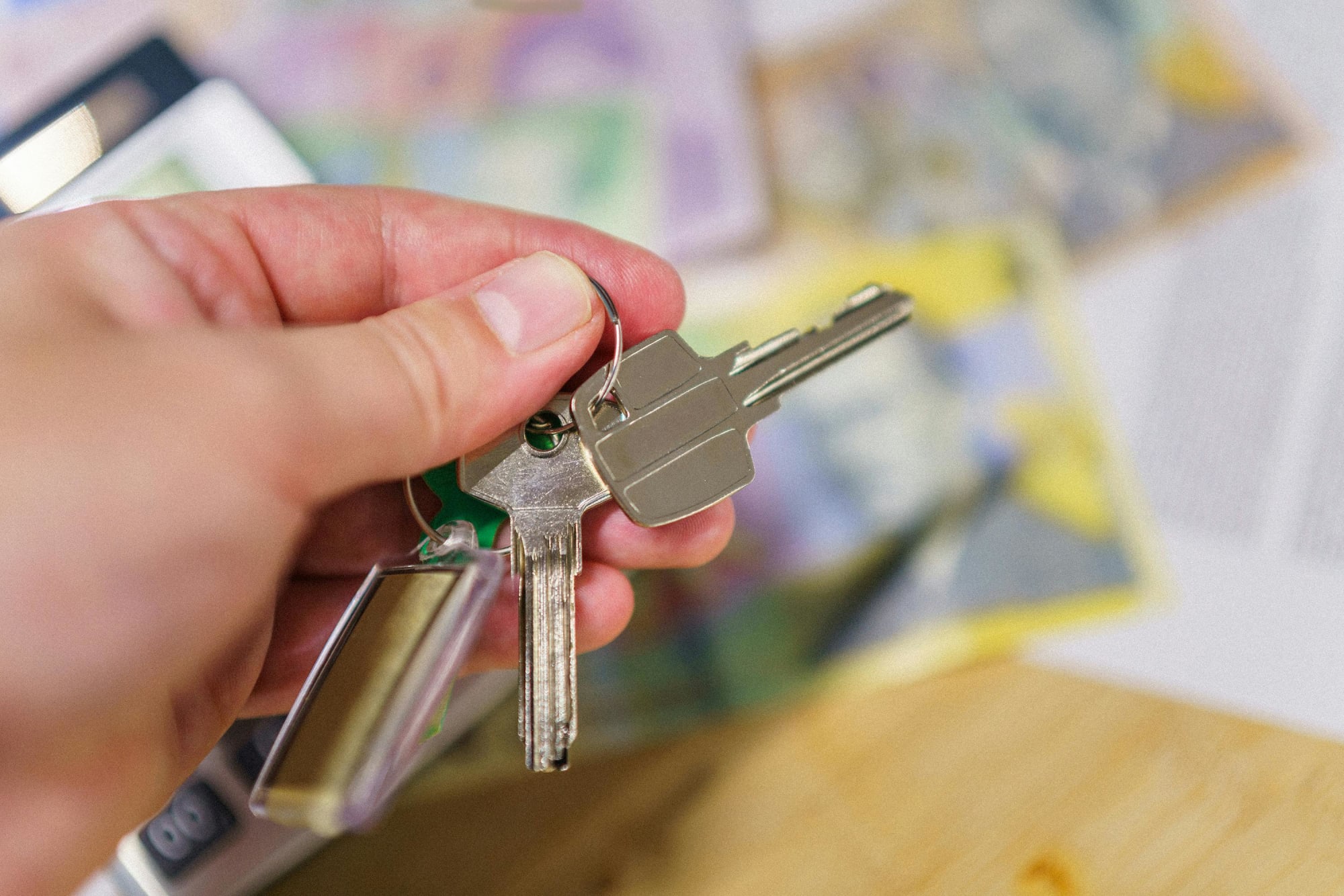Borrow
What is a mortgage?
What is a mortgage? A mortgage is a property loan in which the purchased property is used as a security.
What is a mortgage?
What is a mortgage? A mortgage is a property loan in which the purchased property is used as a security.

The borrower is required to pay the debt with a predetermined set of payments within an agreed period – typically 25 to 30 years. The condition of release for the title of the property is full payment of the debt plus interest.
But if the borrower defaults on the loan, the lender is legally allowed to seize the property.
How can I secure a mortgage?
You can go directly to lenders to get a loan for your first home.
Shop around with different lenders to find acceptable rates and terms if you want to take the direct route. Consider asking for a pre-qualification check if you want to know how much you can potentially borrow for a home loan.

Once you find a favourable loan, take all the necessary documents to the lender to prove your financial capacity and history. The lender will assess how much they can lend you based on the documents you provided and a credit enquiry.
Likewise, you may engage the services of a mortgage broker who can help you process the property purchase.
Mortgage brokers act as middlemen between lenders and borrowers, and they usually know the current loan rates and deals that lenders offer.
Likewise, brokers collect and process all the documentation on your behalf, so you’re sure that you’ve got the proper paperwork covered. But in exchange for their expertise, you’ll be paying for their services.
What is mortgage insurance and how can I avoid it?
More commonly known as lender’s mortgage insurance (LMI), this type of policy is designed to protect the lender in the event that you default on your loan.
LMI pays the lender the shortfall amount if you default on the loan and the selling price of your property isn’t enough to cover your loan amount.
Lenders typically require borrowers to pay for LMI when their loan-to-value ratio is greater than 80 per cent. This means you may avoid paying for LMI if you have a 20 per cent deposit on the property you wish to buy.
About the author

About the author


Loans
Australia’s credit pivot: Mortgage enquiries hit a three‑year peak as households lean on plastic — what lenders and fintechs must do next
Australian home loan interest has rebounded even as households lean harder on cards and personal loans — a classic late‑cycle signal that demands sharper risk, pricing and AI executionRead more

Loans
Trust is the new yield: Why brokers win when credibility compounds
In a market where products look interchangeable, credibility has become the most defensible asset in mortgage broking. With broker channel share hitting record highs and AI reshaping client ...Read more

Loans
Mortgage Relief Window: How Australia’s Lenders Are Rewiring Risk and Growth at a Three‑Year Lull
Australia’s mortgage stress has eased to its lowest level since early 2023, creating a rare—likely brief—window for lenders, brokers and fintechs to reset risk and rebuild growth. This case study ...Read more

Loans
Why ANZ’s tougher stance on company-borrowed home loans matters: A case study in risk recalibration, competition, and what CFOs should do next
ANZ has tightened mortgage credit parameters for loans where a company or trust is the borrower—an apparently narrow policy tweak with wide operational consequences. It signals a broader recalibration ...Read more

Loans
Mortgage 2026: Australia’s share‑of‑wallet war will be won on switching, data rights and AI discipline
The defining feature of Australia’s 2026 mortgage market won’t be house prices; it will be switching velocity. With competition reforms sharpening the Consumer Data Right, lenders and brokers that ...Read more

Loans
Mortgage remorse reshapes the game: Australia's lending squeeze set to redefine banking and household demand
A growing cohort of Australians is rethinking recent home loan decisions as higher repayments collide with household budgets. This isn’t just consumer angst; it’s an economy-wide red flag for lenders, ...Read more

Loans
Aussie mortgage game-changer: Brokers dominate while AI sharpens the edge
Mortgage brokers now originate roughly three in four new Australian home loans, a structural shift that rewires bank economics, product strategy and customer acquisition. MFAA data shows broker market ...Read more

Loans
Fixing the future: How brokers and lenders can turn rate-hike anxiety into strategic advantage
Australian borrowers are leaning into short-term fixed loans as rate uncertainty lingers, shifting risk from households to lenders and their funding partners. That creates a narrow window for broker ...Read more

Loans
Australia’s credit pivot: Mortgage enquiries hit a three‑year peak as households lean on plastic — what lenders and fintechs must do next
Australian home loan interest has rebounded even as households lean harder on cards and personal loans — a classic late‑cycle signal that demands sharper risk, pricing and AI executionRead more

Loans
Trust is the new yield: Why brokers win when credibility compounds
In a market where products look interchangeable, credibility has become the most defensible asset in mortgage broking. With broker channel share hitting record highs and AI reshaping client ...Read more

Loans
Mortgage Relief Window: How Australia’s Lenders Are Rewiring Risk and Growth at a Three‑Year Lull
Australia’s mortgage stress has eased to its lowest level since early 2023, creating a rare—likely brief—window for lenders, brokers and fintechs to reset risk and rebuild growth. This case study ...Read more

Loans
Why ANZ’s tougher stance on company-borrowed home loans matters: A case study in risk recalibration, competition, and what CFOs should do next
ANZ has tightened mortgage credit parameters for loans where a company or trust is the borrower—an apparently narrow policy tweak with wide operational consequences. It signals a broader recalibration ...Read more

Loans
Mortgage 2026: Australia’s share‑of‑wallet war will be won on switching, data rights and AI discipline
The defining feature of Australia’s 2026 mortgage market won’t be house prices; it will be switching velocity. With competition reforms sharpening the Consumer Data Right, lenders and brokers that ...Read more

Loans
Mortgage remorse reshapes the game: Australia's lending squeeze set to redefine banking and household demand
A growing cohort of Australians is rethinking recent home loan decisions as higher repayments collide with household budgets. This isn’t just consumer angst; it’s an economy-wide red flag for lenders, ...Read more

Loans
Aussie mortgage game-changer: Brokers dominate while AI sharpens the edge
Mortgage brokers now originate roughly three in four new Australian home loans, a structural shift that rewires bank economics, product strategy and customer acquisition. MFAA data shows broker market ...Read more

Loans
Fixing the future: How brokers and lenders can turn rate-hike anxiety into strategic advantage
Australian borrowers are leaning into short-term fixed loans as rate uncertainty lingers, shifting risk from households to lenders and their funding partners. That creates a narrow window for broker ...Read more








